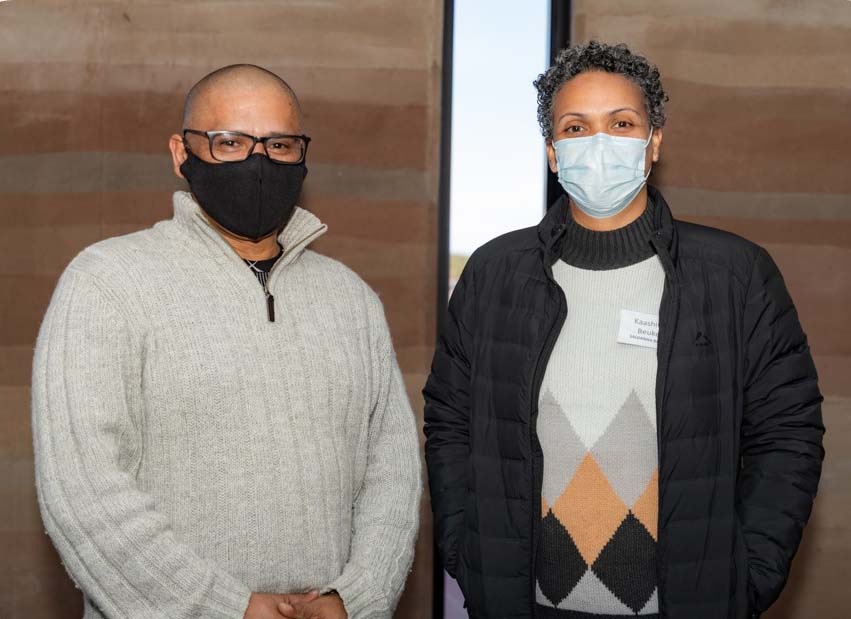Strengthening our partnership with UKFCDO
NEWSLETTER Our Collaboration with uk ktn Collaboration is core to the success of the innovation…
The partnership between the Saldanha Bay Industrial Development Zone Licensing company (SBIDZ-LC) and Cape Peninsula University of Technology (CPUT) marks the first long-term partnership to enhance the innovation efforts of each organisation and holistically drive impactful economic growth within the marine and energy industry. This remarkable collaboration, between one of South Africa’s first Special Economic Zones located within a Customs Controlled Area and an institution at the heart of technology education and innovation in the Western Cape, sparks the engine of transformation for the marine and energy industry in South Africa.

The Department of Science and Innovation reported that fragmentation limits South Africa’s research, development, and innovation output due to restricted collaboration and communication. The report indicated that although South Africa consists of several concentrated knowledge centres and Centres of Excellence, these centres continually work in silos without coordination nor concentrated effort in driving innovation for industrialisation and economic development1. This fragmentation is despite the objectives of the National Development Plan, which calls to accelerate the formation of more institutions to facilitate innovation and enable cooperation between the public and private sectors2. The role of business and industry in local innovation, through participation and investment in research, technology transfer and industrialisation, was reported to be in a state of decline, as such investment is taken offshore to headquarters.
Heading up the call to action is an initiative of the SBIDZ-LC, the Saldanha Bay Innovation Campus (SBIC), which seeks to change the market and economic structure of the region fundamentally by becoming a globally competitive innovation ecosystem in the South African marine and energy sector. The SBIC aims to de-risk the innovation process and catalyse regional socio-economic development by acting across six functional areas. Whereby, the role of the SBIC is to facilitate collaboration, cocreation, and clustering within the marine and energy sector. To date, the SBIC has interacted with more than 400 representatives from various national and international organisations to understand the industry’s developmental enablers. Similarly, gaining a grasp on strategic partnerships could lead to the provision of these enablers.
This partnership is the outcome of a shared vision between the SBIDZ-LC and CPUT, one that seeks to unlock the potential of the West Coast by becoming a nexus of marine and energy innovation. In doing so, creating a conducive environment to promote sustainable economic growth and job creation for the community, reflecting the pioneering spirit of the SBIDZ-LC and CPUT.
The Cape Peninsula University of Technology was established in January 2005, when the Cape Technikon and Peninsula Technikon merged. The institution is the only university of Technology in the Western Cape and the largest university in the region, boasting more than 30 000 students, several campuses and service points and more than 70 programmes.
CPUT brings internationally recognised qualifications and research excellence in applied sciences, engineering and the built environment, informatics, and design, to name a few. Their programmes cover the range of Science, Technology, Engineering and Mathematics awareness and resolution for the commercialisation of innovation.
Over the years, CPUT has demonstrated its ability to develop cutting edge technologies in the Space sector and are set to launch the first South African constellation of three satellites for Maritime Domain Awareness which will use automatic identification system data to monitor ship movements within South Africa’s Exclusive Economic Zone. Nationally, CPUT plays a critical role as a resource centre for Adaptronic Technologies. The Adaptronics Advanced Manufacturing Technology Laboratory (AMTL) is one of the three Technology Innovation Agency technology stations at CPUT and one of eighteen nationwide. The Adaptronics AMTL specialises in research and manufacturing to develop intelligent structures. To this end, they have designed and manufactured a single-seater race car from scratch for the Formula Student competition in the UK where they placed 59th out of 114 universities. They have also established a company, UAV SysCO (Pty) Ltd, that will operate as an original equipment manufacturer focussed on the manufacture and market of unmanned aerial systems (UAS) following the successful development of a demonstrator UAS by AMTL. The laboratory also has also been responsive to the challenges brought on by the pandemic by manufacturing face shields and masks, mostly for CPUT security staff but with some also going to front line workers.
The collaborative partnership will see the SBIDZ-LC, CPUT, and SBIC share and produce knowledge; conduct research, development, and innovation (RDI); advocate for innovation culture; facilitate capacity building and entrepreneur development; enable access to specialised research facilities, and nurture initiatives that contribute to developing a globally competitive innovation ecosystem in the South African maritime and energy sector.
An integral approach is required to develop a functional and conducive National System of Innovation. The clustering approach presents an opportunity to strengthen and develop regional and local innovation systems. Learnings that can be derived from the development of each of these can result in the idealised concerted effort in driving RDI for industrialisation, economic growth, and sustainability. The partnership between the SBIDZ-LC and CPUT strives to connect the nodes between innovation and industrialisation. It acts as a call to action to other Special Economic Zones, academic institutions, private industry, and government to come together and take ownership of South Africa’s future.
References
NEWSLETTER Our Collaboration with uk ktn Collaboration is core to the success of the innovation…
NEWSLETTER The Saldanha Bay Smart Skills Centre is up and running! First group of learners…
NEWSLETTER ENTREPRENEURIAL SUPPORT AND THE ENERGY INVESTMENT VILLAGE PITCHING EVENT CATALYSING THE ENERGY TRANSITION SECTOR…

Always Learning, Always Innovating, Always Collab’ing Our Future.